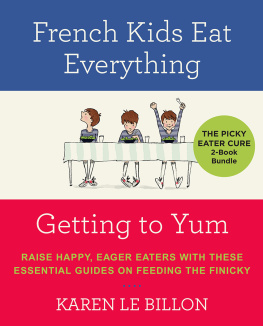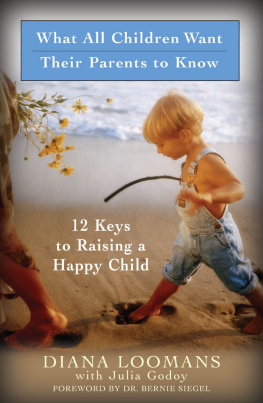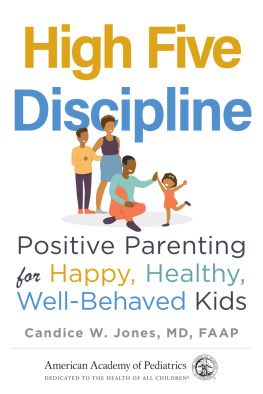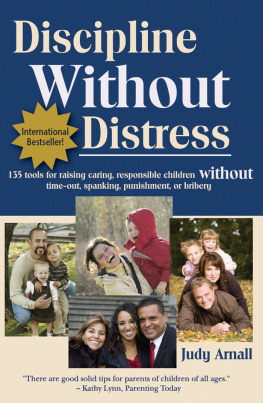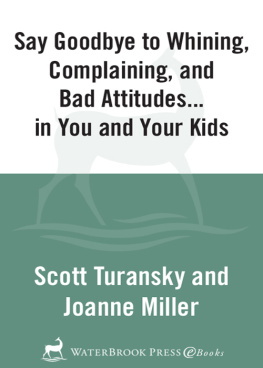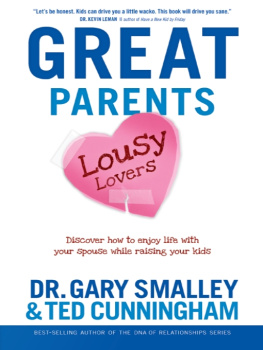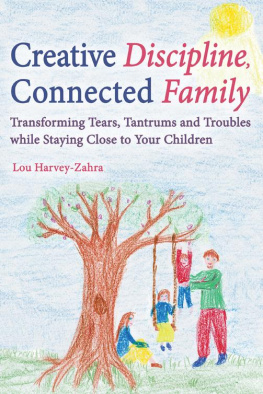Raising Kids You Actually Like
Sheila Wray Gregoire, 2016
Raising Kids You Actually Like
by Sheila WrayGregoire
Copyright 2016 Sheila Wray Gregoire
SmashwordsEdition
The right ofSheila Wray Gregoire to be identified as author of this Work hasbeen asserted by her in accordance with sections 77 and 78 of theCopyright, Designs and Patents Act 1988.
All rightsreserved. No part of this publication may be reproduced, stored inretrieval system, copied in any form or by any means, electronic,mechanical, photocopying, recording or otherwise transmittedwithout written permission from the publisher. You must notcirculate this book in any format.
This book islicensed for your personal enjoyment only. This ebook may not beresold or given away to others. If you would like to share thisbook with others in your group, please purchase an additional copyfor each recipient. Thank you for respecting the hard work of thisauthor.
Introduction
I love my daughters.
They're both in college now, and one ismarried. But you know all that talk about "be their parent, nottheir friend"? That goes out the window once they get to be adultsand they're actually fun and wise all at the same time. Sure, Istill give them advice, and sure, I still have to have hard talkswith them sometimes. But overall they're just really fun friendsthat I text with all the time and bounce ideas off of. I trulyenjoy them.
I've been writing my blog To Love, Honorand Vacuum since 2008, and writing books on marriage and parentingsince 2003. When I started the books, my girls were only 6 and 8. Iwas in the throes of constant laundry and busy schedules and"please, Mommy, don't put sauce on anything." And those who read myblog have been with me every step of the way as my daughters grewfrom children into teenagers and into young women.
I mostly write about marriage, but I dowrite about parenting occasionally. And it's my parenting poststhat often go the biggest on Facebook and Pinterest. I've hadreaders ask me to put the parenting posts all in one place, and that's where this bookcomes from.
In this book we're going to talk aboutraising kids with great character--how to discipline, when to letthings go, and how to interact with your kids using a collection ofmy parenting blog posts. Some of these are older now, so I'll betalking about my daughters as they're growing up, and you'll seethem as they used to be. That can be fun, especially those of youwho know Katie from her YouTube channel (search for Katie Gregoire)today or Rebecca from her blog (lifeasadare.com). But one day, notso long ago, they were children, too.
As I share these stories and some of thethings that I learned and tried, I hope I can help you put parenting inperspective--"you can do it, Moms!" I hope I can show you toenforce the boundaries that God wants for our children so thatthey're more likely to grow up to be kind, generous, responsibleadults. I hope I can show you how to have fun with your kids andengage your kids so that they enjoy being with you .And, of course, I hope to show you how to raise kids you actuallylike.
Let's jump in!
Why We Do What We Do
You're allowed to be a parent.
There. I said it.
You're allowed to set the ground rules, toestablish boundaries in your home, to expect certain behavior outof your kids. You're allowed to say "no" to your children. You'reallowed to say, "the family and the marriage come before eachindividual child." You're allowed to do things which, on occasion,may make them miserable, if ultimately they are for their good.You're allowed to love them lavishly and with abandon withoutgiving them everything they think they want.
In other words, you're allowed to parent theway that God parents.
Let's start with looking at the biggerpicture: why we need to make that choice to actually act like aparent.
Have We Forgotten How To Parent?
Ohio State University conducted a study on childhood obesity, and foundthree things that were most correlated to preventing it: eatingdinner together as a family; reducing the amount of time childrenspend watching TV; and making sure they get regular and adequatesleep. It was the last one that was mildly surprising to me; Iwould have thought family exercise was more important than sleep.But no; sleep won out.
Then I began to think, what ifthere were some other factor at play, behind the scenes, that wasactually the more important one? It seems to me that a family that eats together,that limits TV, and that enforces bedtime is one that puts emphasison order, on family life, and on parenting. And few families dothat today. Families that do will also be the ones that make surechildren do not develop unhealthy habits.
Once I started thinking in this direction,though, I grew rather melancholy. After all, eating dinnertogether, limiting TV time, and enforcing bedtime may be raretoday, but when I was a child, they were considered normalparenting behaviour. They were normal even for families onewouldn't consider that good.
I grew up in a lower middle classneighbourhood to a single mother. All around me were kids insimilar situations whose parents were struggling to make ends meet.And yet I remember one of the big topics of conversation in thirdgrade was who had the latest bedtime.
When I turned eleven, I took thatopportunity to debate with my mother about moving my bedtime backhalf an hour. It had been 8:30, but Little House on thePrairie had newepisodes on Monday nights at 8, and I wanted to see the wholething. I talked strategy with my friends, who were all trying toextend their bedtimes, too, because everybody had abedtime.
We seem to believe that only the "rich" have time to parent well, butit was not always that way. I am not saying that life was perfectin the 1970s; just think Saturday Night Fever and bellbottoms. ButI do think there was this cultural pull to parent appropriately,and everyone seemed to share an idea of what appropriate lookedlike. It was really only the incredibly dysfunctional families whodid not do bedtimes or mealtimes.
Today that dysfunction has become thenorm. Few of my children's childhood friends had bedtimes, eventhose in families one would have considered ideal. Few today havechores. All the semblances of what would have been considerednormal are gone.
Perhaps we don't parent well now as a societybecause the purpose of life has changed. While it once was to beresponsible and support yourself, it is now to have fun and beentertained. We turn to technology instead of to each other.
Chaos is also much more of a factor in toomany children's lives. When so many children don't grow up with twoparents, it's hard to carry on "normal" family life. And with so many families strugglingto deal with conflicting schedules with both parents workingopposite shifts, eating together, or performing family rituals,takes a back burner to just getting through another day. Those oldbasic family rituals become rare.
Parenting isn't rocket science. Ourparents, even those with little education, knew how to do it. Wehave more education and we've forgotten. Provide structure. Providelove. Provide stability by loving your spouse. Care for yourchildren's bodies by feeding them and putting them to bed. Not onlywill that help prevent obesity, it may also help us remember thatreal purpose and joy in life comes from investing in relationshipsand responsibilities, not in stressing our own happiness above all.I'm glad my mother understood that.
In this book, we will discover togetherstrategies to become better parents. We will look at the three mainstages in raising our children: Raising Toddlers, RaisingElementary Age Kids, and Instilling Responsibility in those kids.We will look at topics such as discipline, being a parent, chores,allowances, and even allowing kids to fail. Through this book, itis my hope that we will be able to make a plan not only to raiseour children in a way that will benefit society, but will alsobring glory to God.




